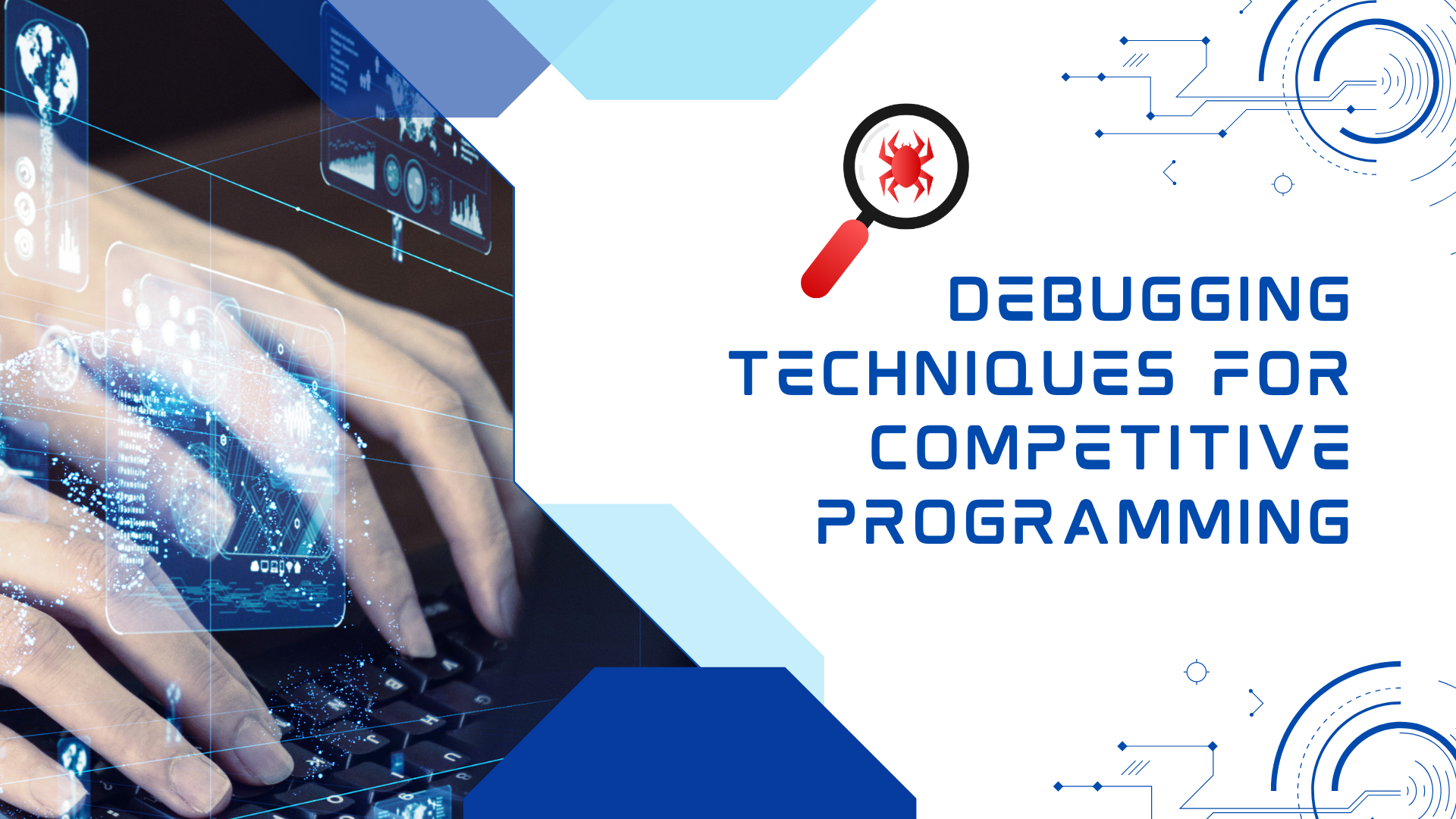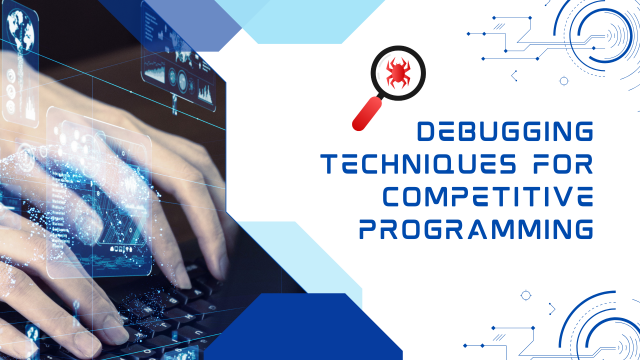 Debugging is an essential skill for any programmer, but it becomes even more critical in competitive programming. When you’re under pressure to solve a problem quickly, finding and fixing errors can be the difference between success and failure. That’s why having effective debugging techniques in your toolkit is crucial. In this blog post, we’ll explore some of the best debugging techniques for competitive programming and provide tips to help you quickly identify and fix errors in your code.
Debugging is an essential skill for any programmer, but it becomes even more critical in competitive programming. When you’re under pressure to solve a problem quickly, finding and fixing errors can be the difference between success and failure. That’s why having effective debugging techniques in your toolkit is crucial. In this blog post, we’ll explore some of the best debugging techniques for competitive programming and provide tips to help you quickly identify and fix errors in your code.
Also Read: Best Tools and Resources for Competitive Programmers
AMCAT’s Coding Marathon is a 4-day long virtual event where students from all around can come to participate from the 28th-31st of March. This is going to be one of the largest coding events that will test the participants’ technical and coding abilities. It will be open for students of all batches from 2021 onwards where both tech & non-tech students can participate.
Also Read: How to Prepare for Coding Competition?
Debugging is a crucial skill for any programmer, but it becomes even more important in the high-pressure environment of coding competitions. Here are some effective debugging techniques that can help you quickly identify and fix errors in your code:
- Code Profiling: Code profiling is the process of measuring the performance of your code and identifying bottlenecks or areas for improvement. By using a profiler, you can pinpoint the parts of your code that are taking the maximum time to execute and optimize them for faster performance.
- Test-Case Generation: One of the most effective ways to debug your code is to test it with different inputs and edge cases. By generating a variety of test cases, you can ensure that your code is working correctly under different scenarios and identifies any errors that might have been missed otherwise.
- Output Analysis: When you’re working on a complex algorithm, it can be difficult to pinpoint the exact location of an error. By analysing the output of your code, you can easily identify where the problem is occurring and then work backwards to find the root cause.
- Code Review: One of the best ways to catch errors in your code is to have someone else review it. By getting feedback from other programmers, you can identify areas where your code can be improved or where errors might remain hidden.
- Debugging Tools: There are many debugging tools available that can help you quickly identify and fix errors in your code. Some popular options include debuggers, which allow you to step through your code and see the state of variables at each step, and profilers, which can help you identify performance issues.
Having a variety of effective debugging techniques in your toolkit is essential for success in coding competitions. By using techniques like code profiling, test-case generation, output analysis, code review, and debugging tools, you can quickly identify and fix errors in your code and improve your overall performance.


























